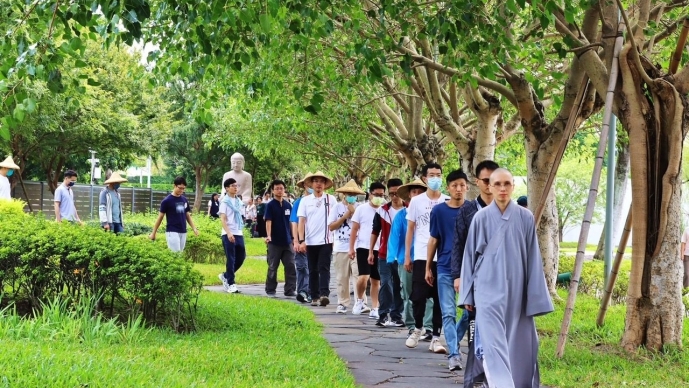Summer: Rutgers- Meditation and Social Work in Taiwan
The Program
Meditation and social work are two distinct but interconnected areas. Both have a role in promoting physical and mental well-being, harmonizing in diverse ways. The aims of the course are to introduce students to the development of meditation and social work in Taiwan, unveiling the intricate links between these two domains. Students will have a chance to participate in meditation practice and explore the connection between meditation and social work practice.

Program Locations

Taiwan
Taipei
Home to approximately 6 million residents, Taipei is the thriving economic, political, and cultural center of Taiwan. Students will spend the first week at National Taiwan University, in the School of Social Work. The second week will be spent in New Taipei City, at Dharma Drum Institute of Liberal Arts.
Academics
This course will introduce the meditation development in Taiwan, including Buddhist tradition and mindfulness-based programs, as well as the rapid development of social work profession in various fields, which play a vital role in addressing social issues, providing support to vulnerable populations, and advocating for social justice and equality. Students will explore comparative perspectives on social work practice between Taiwan and the United States, drawing on the academic literature, research initiatives, and site visits to various organizations and agencies. This is an elective course for students with a special interest in meditation, and international social work.
Housing and Meals
Students would stay in hostels and university dormitories, all meals are included.
Financial Information
Program Costs
| Program Cost | NJ Resident | non-NJ Resident |
|---|---|---|
| Undergraduate | $3,280 | $3,660 |
| Graduate | $3,510 | $3,870 |
Program Cost includes:
- Tuition
- Housing
- Some meals
- Excursions
- Administrative Fees
- Emergency Medical Access Abroad
Out-of-Pocket Costs
| Airfare | $1,800 |
| Some Meals | $200 |
| Personal Expenses | $500 |
| Total | $2,500.00 |
Out-of-Pocket Cost includes:
The above costs are estimations and represent the known out-of-pocket costs students encounter during their time abroad.
Some of these expenses will be paid for prior to going abroad, such as an airline ticket, while some of these expenses, such as meals and personal expenses, will be paid in-country as part of your daily expenses. As you plan, you will need to budget these costs and spend wisely throughout your time abroad.

